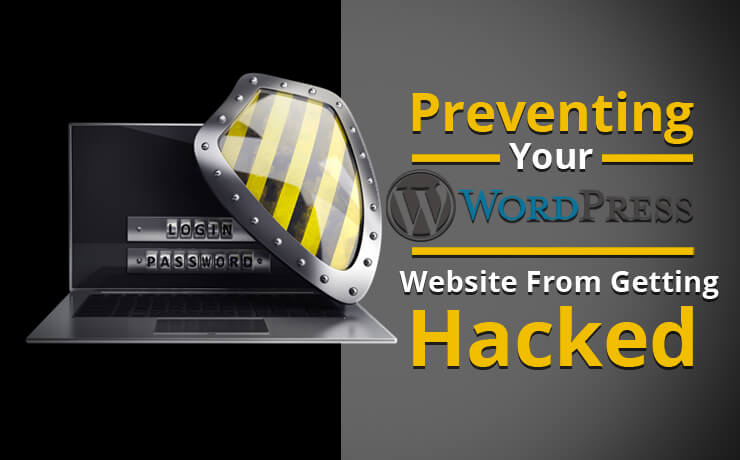Preventing Your WordPress Website From Getting Hacked

Chad Faith
Director of Content

You’re not wrong when you think that WordPress is an easy-to-install and relatively secure platform to build websites. While it’s a platform that allows you to add your own custom code, themes, and plugins, it can be hacked if you add too much. Starting to worry if your WordPress website is still safe in 2016? Find out how you can secure your WordPress website’s backend to prevent your site from getting hacked. Remember, safety first!
Disable the Built-in Plugin and Theme Editor
If the developer in you have the habit of making tweaks and changes to your site’s themes and plugins on a routine basis, this section may cause a major concern. If you are someone who ignores the built-in plugin and theme editor (located in the WordPress dashboard), you should consider disabling it for good. Why disable it?
You see, authorized WordPress users – like yourself – are granted access to this editor and if your account is hacked, the perpetrator can use this editor to take down your entire site. All they need to do is to modify the code found in the editor! Now that’s risky I must say. You can remove this editor by inserting define( ‘DISALLOW_FILE_EDIT’, true ); into your site’s wp-config.php file.
Take Advantage of Automatic Core Updates
Whenever a new version of your WordPress installation is released, going ahead with the update is a must. If you choose to run an older version of WordPress, you should note that the security flaws in the version – the one you’re currently running – are ripe for the picking. As it is already common knowledge to the public, hackers can easily use the info to launch an untimely attack on your site. To make site maintenance easier, you can consider automating the updating process. Automatic updates are a good option for site owners who prefer a hands-off approach when managing their secure sites.
Caution: Auto updates can break your site. Okay, not really.
Why? Because the theme or plugins you are using for your site are no longer compatible when you update to the latest version. However, updates are still needed to reduce security breaches and risks especially if you do not log into your site on a regular basis.
Avoid Excessive Plugin Use
The golden rule is to always limit the total number of plugins one install for his or her WordPress website. This is needed to keep one’s site secure. If a plugin is needed (really needed!), it is pertinent to be scrupulous in the criteria one uses during the selection. In addition, never download pirated plugins. They are often corrupted with malware!
If the plugin is acquired from illegal download sites, the program may have already been altered and is now a hacker’s direct line into your site’s backend. It’s really not worth it even if it was free in the first place. While it’s not always about security concerns, excess plugins may affect your website’s overall performance and speed. If your site loads too slowly, the experience it’s going to provide will not appeal well to potential viewers and visitors.
Are you forgetting something? If you are seeking confirmation whether regular password changes is still valid in today’s time, the answer is yes; yes, you are still recommended to change your WordPress backend’s access password, and you better make it good! Remember to always go for random strings of numbers, characters, and letters! If you’re feeling lazy, consider using strong and reliable password generators.









